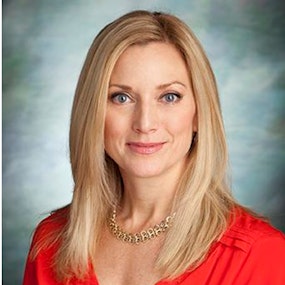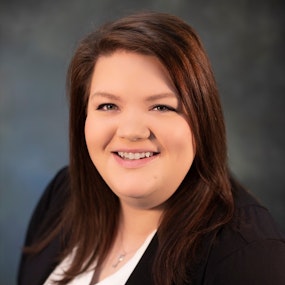ROBERT JOHNSON:
This is the award-winning Public Health Review Morning Edition for Friday, December 1, 2023. I'm Robert Johnson. Now, today's news from the Association of State and Territorial Health Officials.
ELKE SHAW-TULLOCH:
There are seven recommendations in the climate and health policy statement for public health to adopt to increase capacity to prevent, protect, and respond to the impacts of climate and extreme weather.
JOHNSON:
Elke Shaw-Tulloch is public health administrator of the Idaho Department of Health and Welfare. She helped lead the work on updates to ask those latest policy statement on climate and health.
SHAW-TULLOCH:
I think that one of the most valuable recommendations in the document is to ensure sufficient funding across the states and territories to address this important public health issue because, currently, there's very limited number of federal funds and grants for state and territorial public health agencies to do this work, and it's important that we all have the capacity and the capabilities to be able to address this important issue.
JOHNSON:
Climate can be a touchy subject in some states. Shaw-Tulloch says the policy statement tries to navigate those concerns.
SHAW-TULLOCH:
Our committee understands that there may be elements of this topic that many might not find appropriate for every single state, but the policy statement does strike a really nice balance in the recommendations that straddles the political landscape.
JOHNSON:
ASTHO has released five policy statements on important public health issues. We've been reporting on them all this week. There's one left to cover on Monday. You can listen to those conversations on this channel, and you can read all five statements using the link in the show notes.
Discovery of a case of dengue fever in California last month has many asking questions about the mosquito-borne illness. The CDC's Dr. Lyle Petersen says public health agencies can take action to reduce the likelihood of a case in their jurisdiction.
LYLE PETERSEN:
Such as conducting surveillance, for example, or removing places where mosquitoes can breed or controlling mosquitoes in all life stages and testing local mosquitoes for insecticide resistance and also educating the public and healthcare providers about dengue and other mosquito borne vector borne diseases.
JOHNSON:
Petersen says agencies also need to educate providers about the signs of the illness and open communication channels to get reports quickly.
PETERSEN:
And that communication between health departments and health care providers is key to inform people about the risks so they can inform their patients as well, as well as to identify cases that may occur.
JOHNSON:
The CDC has information for agencies and providers. Look for the links in the show notes.
Also, today, two new opportunities to learn how to improve health outcomes through performance improvement are on the schedule in 2024. Public health improvement training is set for May and June. Brenna Davidson is with the Missouri Health Department; she attended a recent PHIT training event.
BRENNA DAVIDSON:
So, convenings like that are so important so we can stay on that cutting edge. You know, it's called continuous quality improvement for a reason. So, PHIT is a great way to keep updated.
JOHNSON:
Davidson appreciates the in-person sessions but says the recorded presentations are equally helpful.
DAVIDSON:
You know, there's so many sessions you're going to miss something that you wish you could have gone to. So, when you have that shower thought like two weeks later, you can go back to the event center and pull the information down and relearn it and refer back.
JOHNSON:
Learn more about PHIT training and make plans to attend in person or online using the link in the show notes.
Finally, this morning, Florida will use ASTHO SPACECAT tool to evaluate its work on adverse childhood experiences as part of a plan to improve health and safety for people across the state. O'Keyla Cooper has more.
O'KEYLA COOPER:
Florida has launched a five-year plan to improve public health standards, focusing on mental health, early intervention, and community collaboration to tackle issues like suicide and adverse childhood experiences. The plan aims to create safer, healthier communities through innovative prevention strategies and overall health promotion. Click the link in the show notes for details on Florida's five-year plan.
JOHNSON:
Before we go, we'd like to remind you to follow this newscast on your podcast player and ASTHO on social media. We're on LinkedIn, Twitter, and Facebook. That'll do it for today.
We're back Monday morning with more ASTHO news and information. I'm Robert Johnson. You're listening to the award-winning Public Health Review Morning Edition. Have a great weekend.







